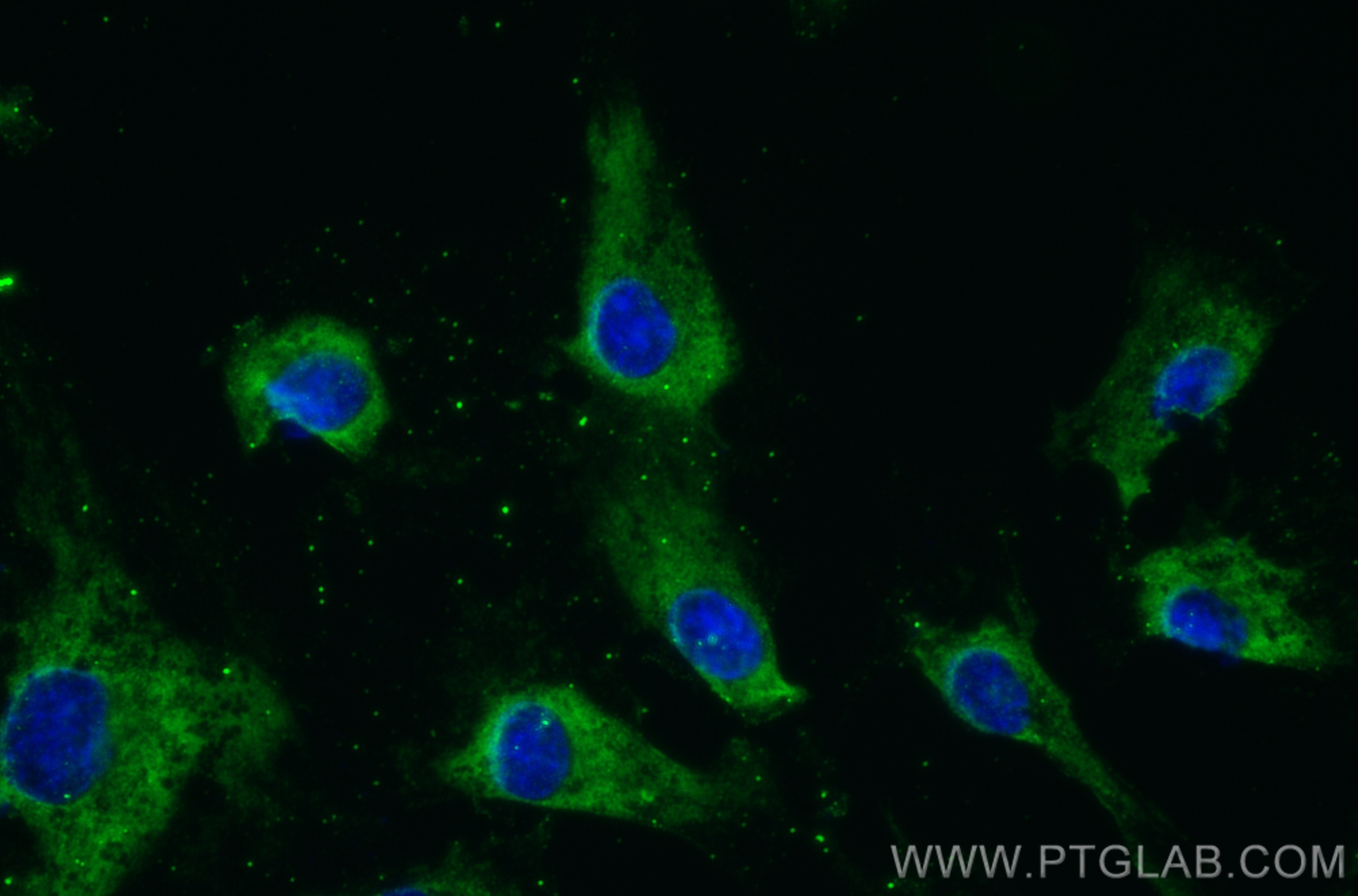Validation Data Gallery
Filter:
Tested Applications
| Positive IF/ICC detected in | HUVEC cells |
Recommended dilution
| Application | Dilution |
|---|---|
| Immunofluorescence (IF)/ICC | IF/ICC : 1:50-1:500 |
| It is recommended that this reagent should be titrated in each testing system to obtain optimal results. | |
| Sample-dependent, Check data in validation data gallery. | |
Product Information
CL488-68439 targets ARP3/ARP3B in IF/ICC applications and shows reactivity with human, mouse, rat, pig, rabbit samples.
| Tested Reactivity | human, mouse, rat, pig, rabbit |
| Host / Isotype | Mouse / IgG1 |
| Class | Monoclonal |
| Type | Antibody |
| Immunogen | ARP3/ARP3B fusion protein Ag5017 相同性解析による交差性が予測される生物種 |
| Full Name | ARP3 actin-related protein 3 homolog (yeast) |
| Calculated molecular weight | 418 aa 47 kDa |
| Observed molecular weight | 47 kDa |
| GenBank accession number | BC044590 |
| Gene Symbol | ARP3/ACTR3 |
| Gene ID (NCBI) | 10096 |
| RRID | AB_3673015 |
| Conjugate | CoraLite® Plus 488 Fluorescent Dye |
| Excitation/Emission maxima wavelengths | 493 nm / 522 nm |
| Form | Liquid |
| Purification Method | Protein G purification |
| UNIPROT ID | P61158 |
| Storage Buffer | PBS with 50% glycerol, 0.05% Proclin300, 0.5% BSA{{ptg:BufferTemp}}7.3 |
| Storage Conditions | Store at -20°C. Avoid exposure to light. Stable for one year after shipment. Aliquoting is unnecessary for -20oC storage. |
Background Information
ARP3 (also known as ACTR3) is a major constituent of the ARP2/3 complex that is necessary for nucleating actin polymerization at filament branches. ARP3 localizes to the lamellipodia of stationary and locomoting fibroblasts. Overexpression of ARP3 has been reported in several types of cancer cells. This antibody recognizes endogenous ARP3 and may cross-react with ATCR3B.
Protocols
| Product Specific Protocols | |
|---|---|
| IF protocol for CL Plus 488 ARP3/ARP3B antibody CL488-68439 | Download protocol |
| Standard Protocols | |
|---|---|
| Click here to view our Standard Protocols |
